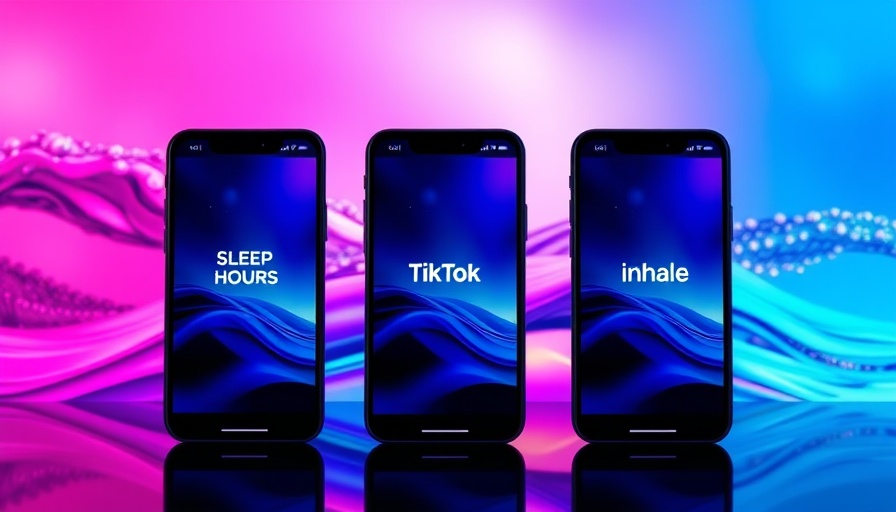
Understanding TikTok's Latest Mental Health Initiative
TikTok is setting the stage for a new paradigm in social media user interaction by implementing an in-app meditation feature aimed specifically at teenagers. Dubbed 'Sleep Hours,' this initiative encourages users under 18 to engage in guided meditation exercises if they try to scroll through the app after 10 PM. This proactive measure is crucial in fostering healthier screen time habits, especially considering that studies have shown that excessive late-night social media use can lead to sleep disruption and mental health issues.
Why Teens? The Psychological Impact of Screen Time
The choice to target teenagers is deliberate, as this demographic has been identified as particularly vulnerable to the detrimental effects of social media addiction. The app's previous tests indicated a staggering 98% compliance with the meditation prompts, suggesting that many teens appreciate the intervention. Furthermore, young users were spending an average of 107 minutes per day on TikTok, often ignoring their own self-imposed limits. These figures highlight the necessity of TikTok's initiative amidst rising concerns over mental health in the digital age.
Counterarguments: The Persistent Challenge of Screen Time Limits
Despite this initiative being well-received, critics may argue about its effectiveness. For instance, past attempts by TikTok to manage screen time through settings that allowed users to limit their usage have not always been successful, as evidence showed many teens continued to stay engaged despite limitations. This raises an important question: will the new meditation prompts genuinely lead to healthier habits, or will they be viewed as mere nuisances that teens can—and likely will—dismiss? TikTok’s challenge will be to strike a balance between encouraging mindfulness and respecting users’ autonomy.
Future Predictions: A Shift Towards More Responsible Tech Usage
As tech companies face increasing scrutiny regarding user safety and mental health, TikTok’s approach could set a precedent for how other platforms respond to similar challenges. This could lead to an emerging trend where social media applications incorporate more mental health and well-being features. As we look to the future, we may see a growth in AI-powered tools that not only entertain but also promote health—such as apps that monitor users' emotional states and recommend grounding techniques like meditation or digital detox periods.
Take Action: Embrace Mindfulness in the Digital Age
As we navigate the complexities of social media and its influence on mental health, it's vital to remain proactive. Consider implementing your own technology boundaries and mindfulness practices. Explore new productivity gadgets that encourage breaks and promote user well-being, helping create a balanced relationship with technology.
 Add Row
Add Row  Add
Add 




 Add Row
Add Row  Add
Add 

Write A Comment